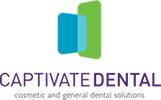Oral Hygiene
Oral Hygiene Cheltenham
 Oral hygiene keeps the mouth clean and is considered to be the best means of prevention of cavities, gingivitis, periodontitis, and other dental disorders. It also helps to prevent bad breath.
Oral hygiene keeps the mouth clean and is considered to be the best means of prevention of cavities, gingivitis, periodontitis, and other dental disorders. It also helps to prevent bad breath.
Oral hygiene is necessary to maintain the health of the teeth and mouth. Healthy teeth have fewer chances of developing cavities.
They are clean and have minimal to no plaque build-up. Healthy gums are pink and firm.
Consider the following oral hygiene tips to help you take your care routine to the next level.
Don’t sleep without brushing your teeth
As a rule of thumb, dentists recommend brushing at least two times a day. Still, many of us fail to brush our teeth at night.
But brushing before sleeping gets rid of the germs and plaque that accumulate throughout the day.
Brush properly
How you brush your teeth is as important as how often you do it. Brushing poorly is almost as bad as not brushing at all.
Take your time, move the toothbrush in gentle, circular motions to remove plaque. Unremoved plaque can harden, resulting in calculus build-up and gingivitis.
Don’t forget your tongue
Plaque can also develop on your tongue, leading to bad mouth odour and other oral health issues. Don’t forget to brush your tongue every time you brush your teeth.
Use a fluoride-containing toothpaste
In toothpaste, there are more important factors to look for than whitening power and flavours. Regardless of the variant you choose, make sure it contains fluoride.
Fluoride is the teeth’s leading defence against cavities. Fluoride works by fighting bacteria that can lead to decay, as well as providing a protective barrier for your teeth.
Treat flossing as equally important as brushing
Many of those who brush regularly neglect flossing. Flossing stimulates the gums, reduces plaque, and helps lower inflammation in the area.
Flossing once daily is usually enough to reap these benefits.
Don’t let flossing difficulties stop you
Flossing can be challenging, especially for young children and older adults with arthritis.
Rather than giving up, look for tools that can help you floss your teeth. Ready-to-use dental flossers available in drugstores can make a difference.
Consider mouthwash
Many people skip mouthwashing because they don’t know how mouthwash works. Mouthwash helps in three ways:
Reducing the amount of acid in the mouth, cleaning hard-to-brush areas in and around the gums, and remineralising the teeth.
Drink more water
Water is still the best beverage for your overall health — including oral health. It is recommended to drink water after every meal.
This can help, in between brushes, to wash away the negative effects of sticky and acidic foods and beverages.
Eat crunchy fruits and vegetables
Ready-to-eat foods are may be convenient, but perhaps not so much when it comes to the teeth. Fresh, crunchy fruits and vegetables not only contain healthier fibre, but are also the best choice for your teeth.
Limit sugary and acidic beverages
Ultimately, sugar converts into acid, which can then erode the tooth enamel. These acids lead to cavities. Acidic beverages, such as fruit drinks, teas, and coffee, can also wear down the teeth enamel.
While you don’t necessarily have to avoid them altogether, it doesn’t hurt to be mindful.
See your Cheltenham dentist at least twice a year
Your everyday routine is crucial to your overall oral health. Still, even the most dedicated brushers and flossers need to see a dentist for cleanings and check-ups twice a year.
Not only can a dentist remove calculus and spot cavities, but also detect potential problems and offer treatment solutions.
Some dental insurance companies cover more frequent dental check-ups. If this is your case, take advantage of it.
Doing so is helpful, especially if you have a history of dental issues, like gingivitis or frequent cavities.
What your Cheltenham Dentist can do
Dental Check-ups
Dental check-ups help your dentist determine if you have dental problems, and they help you to keep your mouth healthy.
Patients should visit their dentist at least twice a year, depending on the health of their teeth and gums.
At your visit to your Cheltenham dentist, you will receive a comprehensive examination of your mouth, neck, and face, professional scaling and cleaning, and a consultation about your dental and overall health.
Professional Scale and Clean
Dental scaling is the most common non-surgical and pain-free way to treat gum disease.
This treatment eliminates plaque and tartar from your teeth and helps your gums recover.
If you have a difficult case of periodontal disease and your condition requires gum surgery, your Moorabbin dentist may recommend scaling and root planing before the surgery, as well as thorough teeth cleaning before the scaling and cleaning procedure.
Scaling is non-surgical, but it is a different type of procedure from regular dental cleaning because it involves cleaning the areas of the teeth along and below the gum line.
Dental X-rays
Dental X-rays help your dentist spot damage and disease that might not be noticed during a regular, ocular dental examination.
How often X-rays are taken is based on your current oral health, your age, your risk for diseases, and any signs and symptoms of oral diseases.
Dental X-rays are usually performed every year. They can be taken more often if your dentist is monitoring the progress of a dental issue or treatment.
Oral Hygiene in Cheltenham
At Captivate Dental, we don’t let any dental problems take over your mouth. We perform patient-friendly and helpful dental examinations, X-rays, and scale and cleans according to your needs and preferences.
Visit your Cheltenham dentist today!
Oral Hygiene in Cheltenham
For more oral hygiene tips in Cheltenham, call us on (03) 9553 1249. Visit us on the web, or use our convenient online booking page.
We are located at 36 Chesterville Road in Cheltenham.
